AWM41 1036 - [Nurses Narratives] Sister Irene E Seuling - Part 2
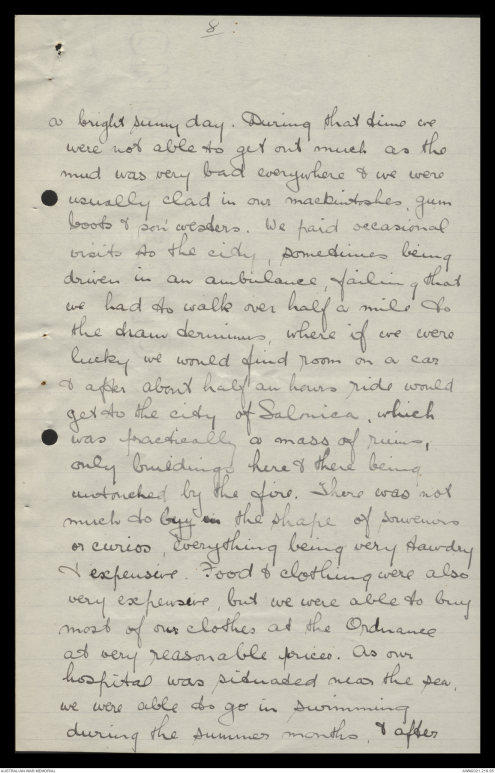
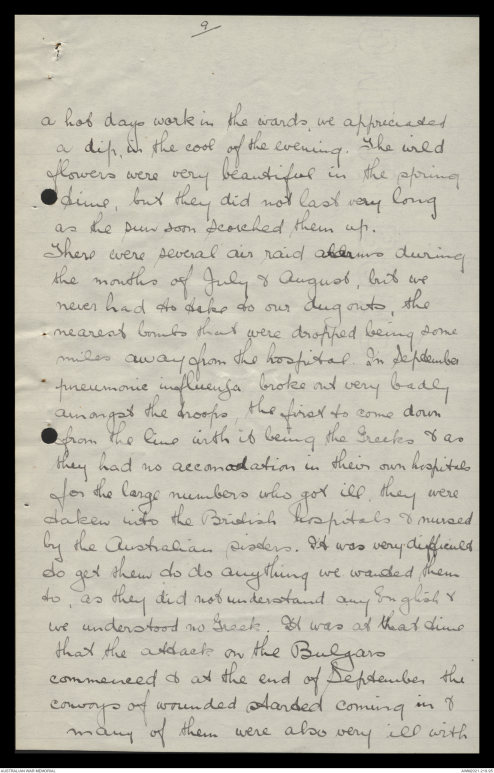
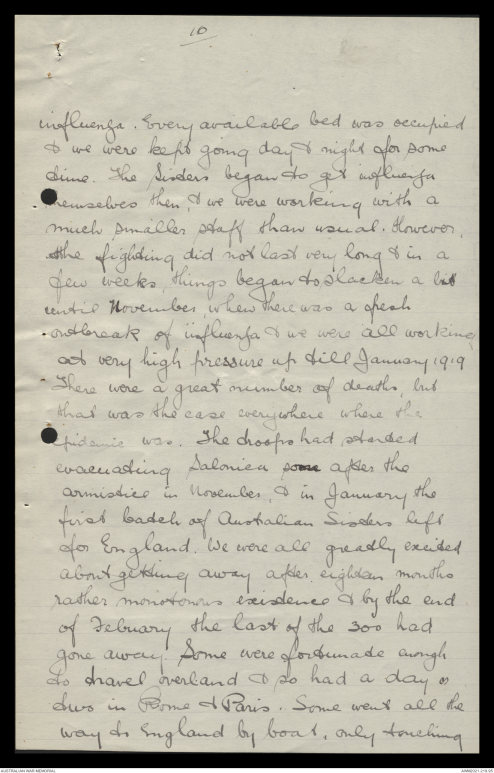
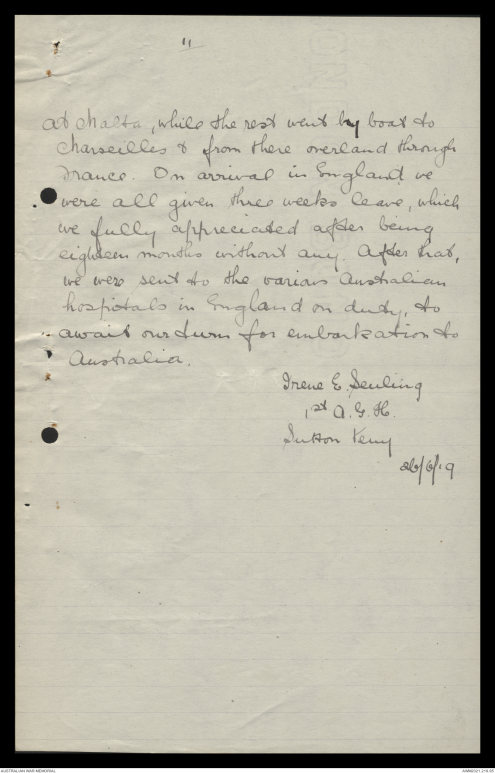
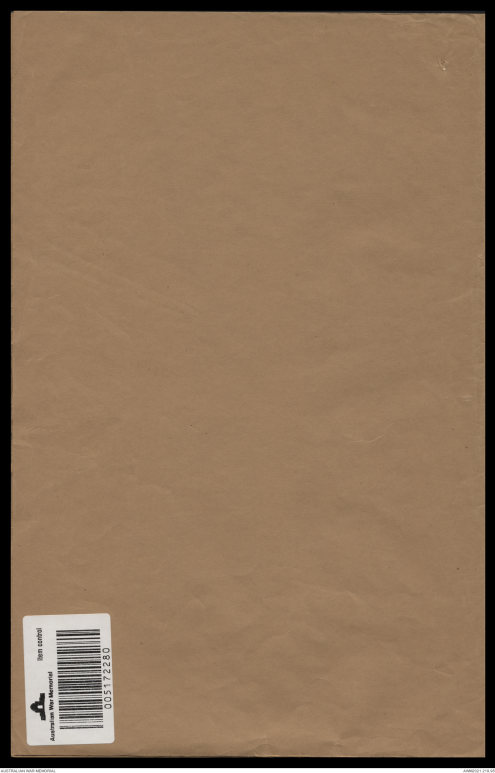
8
a bright sunny day. During that time we
were not able to get out much as the
mud was very bad everywhere & we were
usually clad in our mackintoshes, gum
boots & sou'westers. We paid occasional
visits to the city, sometimes being
driven in an ambulance, failing that
we had to walk over half a mile to
the train terminus, where if we were
lucky we would find room on a car
& after about half an hours ride would
get to the city of Salonica, which
was practically a mass of ruins,
only buildings here & there being
untouched by the fire. There was not
much to buy in the shape of souvenirs
or curios, everything being very tawdry
& expensive. Food & clothing were also
very expensive, but we were able to buy
most of our clothes at the Ordnance
at very reasonable prices. As our
hospital was situated near the sea,
we were able to go in swimming
during the summers months, & after
9
a hot days work in the wards, we appreciated
a dip, in the cool of the evening. The wild
flowers were very beautiful in the spring
time, but they did not last very long
as the sun soon scorched them up.
There were several air raid alarms during
the months of July & August, but we
never had to take to our dug outs, the
nearest bombs that were dropped being some
miles away from the hospital. In September
pneumonic influenza broke out very badly
amongst the troops, the first to come down
from the line with it being the Greeks & as
they had no accomodation in their own hospitals
for the large numbers who got ill, they were
taken into the British hospitals & nursed
by the Australian Sisters. It was very difficult
to get them to do anything we wanted them
to, as they did not understand any English &
we understood no Greek. It was at that time
that the attack on the Bulgars
commenced & at the end of September the
convoys of wounded started coming in &
many of them were also very ill with
10
influenza. Every available bed was occupied
& we were kept going day & night for some
time. The Sisters began to get influenza
themselves then, & we were working with a
much smaller staff than usual. However,
the fighting did not last very long & in a
few weeks, things began to slacken a bit
until November, when there was a fresh
outbreak of influenza & we were all working
at very high pressure up till January 1919
There were a great number of deaths, but
that was the case everywhere where the
epidemic was. The troops had started
evacuating Salonica soon after the
armistice in November, & in January the
first batch of Australian Sisters left
for England. We were all greatly excited
about getting away after eighteen months
rather monotonous existence & by the end
of February the last of the 300 had
gone away. Some were fortunate enough
to travel overland & so had a day or
two in Rome & Paris. Some went all the
way to England by boat, only touching
11
at Malta, while the rest went by boat to
Marseilles & from there overland through
France. On arrival in England we
were all given three weeks leave, which
we fully appreciated after being
eighteen months without any. After that,
we were sent to the various Australian
hospitals in England on duty, to
await our turn for embarkation to
Australia.
Irene E. Seuling
1st A.G.H.
Sutton Veny
26/6/19
Item control
Australian War Memorial
005172280
 Lulu B
Lulu BThis transcription item is now locked to you for editing. To release the lock either Save your changes or Cancel.
This lock will be automatically released after 60 minutes of inactivity.